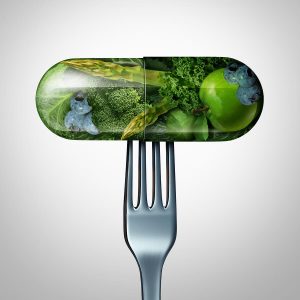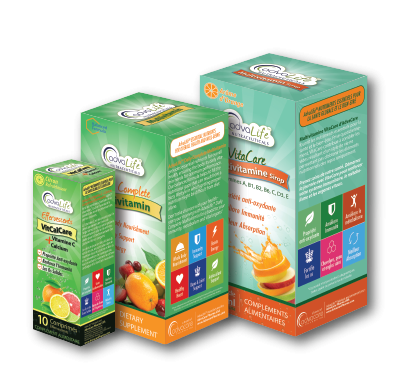Nutraceutical is a combination from two words i.e. ‘nutrition’ and ‘pharmaceutical’. Nutraceuticals can be defined as a food or a part of food which helps in altering and maintaining normal physiological functions in healthy human beings.
The principal reasons for the growth of the nutraceutical market worldwide are the current population and the health trends. The food products used as nutraceuticals can be characterized as dietary fibers, prebiotics, probiotics, polyunsaturated fatty acids, antioxidants and other different types of herbal/ natural foods. These nutraceuticals help in fighting some of the major health problems of the century such as metabolic disorders (obesity, cardiovascular disease, cholesterol & diabetes), cancer, bone disorders (osteoporosis, arthritis etc.). Altogether, ‘nutraceuticals’ have led to the new era of medicine and health.

Rise of Nutraceuticals
The rise of nutraceuticals has increased over the past few years and they are being used by people for various therapeutic outcomes. This article brings out the importance of nutraceuticals and their usage in various diseases and ailments.
Nutraceutical products are recognized not only for their better health outcomes to reduce the risk of cancer, heart diseases, and other related ailments but other related ones such as cataracts, menopausal symptoms, insomnia, weakened memory and concentration and gastrointestinal problems.
Nutraceuticals derived from the combination of ginger, garlic, and honey have also found considerable trust in treating headaches and migraines resulting from stress. Other related neutraceutical products green tea, Vitamin E and Vitamin C are meant as a cure for thinning hair, lack of confidence, poor complexion, varicose veins, alcoholism, depression, and lethargy.
Nutraceutical products signify a value-added growth prospect for the pharma industry, both domestically and internationally. The market is compelled by the aging population, rising health care costs, advances in food technology and nutrition, as well as a growing consumer understanding of the association between diet and health.
The nutraceutical field is emerging with the highest peak of research and development. The greatest scientific need pertains to standardization of the nutraceutical compounds and carefully develop and execute clinical studies to provide the basis for health claims to produce an impact on the consumers as well as on the nutraceutical companies.
Nutraceuticals – Therapeutic agents
The majority of the nutraceuticals does possess multiple therapeutic benefits and has been claimed to have physiological benefits or provide protection against various diseases as the following products:
- Cardiovascular agents;
- Anti-obese agents;
- Anti-diabetic agents;
- Anti-cancer agents;
- Immune boosters;
- Substances that manage chronic inflammatory disorders;
- Formulations to cure degenerative diseases.
Nutraceuticals – Categories
Nutraceuticals are non-specific biological therapies used to stimulate wellness, inhibit malignant processes and control symptoms. They are categorized as follows based on their chemical constituents:
- Nutrients;
- Herbals or botanical;
- Dietary supplements.

Vegetables, fruits, whole grains, herbs, nuts, and seeds contain an abundance of phenolic compounds, terpenoids, sulfur compounds, pigments, and other natural antioxidants which act as compounds for the treatment of different metabolic disorders. Food derived from herbs, citrus fruits & vegetables provide plenty of polyphenols, vitamin C, folic acid, potassium and soluble fiber and are also believed to prevent cancers. The vast number of nutraceuticals, including vitamins, minerals, phytochemicals, and other ingredients, is like an alphabet soup ranging from A to Z.
Among the minerals, selenium is a vital trace element that is involved in the defense against the toxicity of reactive oxygen species and helps in regulation of thyroid hormone metabolism. Brazil nuts are the richest known source of selenium, one ounce contains approximately 200 mcg. Its deficiency has caused serious health effects in humans, such as Keshan’s disease, a potentially fatal form of cardiomyopathy (disease of the heart muscle) that affects young women and child. Selenium shows a significant role in the impairment of thyroid immunity. Recommended dietary allowances for selenium varies from 20μg per day for children to 55μg per day for adults. On the other hand, the tolerable upper intake levels of selenium range from 90μg per day to 400μg per day for children and adults respectively.
Similarly, Vitamin C and Vitamin E are majorly important vitamins/antioxidants in the category of nutraceuticals. These vitamins act both alone as well as in combination to prevent the oxidative reactions leading to several degenerative diseases including cancer, cardiovascular diseases, cataracts etc.
Apart from minerals and vitamins, essential fatty acids or polyunsaturated fatty acids (PUFA’s) act as a crucial category of nutraceuticals. PUFAs have two subdivisions: omega-3-(n-3) fatty acids and omega-6-(n-6) fatty acids. The major omega-3-fatty acids are α-linolenic acid (ALA), eicosapentaenoic acid (EPA), docosahexaenoic acid (DHA). ALA is the precursor of EPA and DHA. EPA and DHA are found mainly in fatty fish such as mackerel, salmon, herring, trout, bluefin tuna and in fish-oils. Principal sources of ALA are mainly flaxseed, soybeans, canola, some nuts (e.g. walnuts) and red/black currant seed.
Studies suggest that omega-3-fatty acids have three major effects as cardiovascular diseases anti-arrhythmic (preventing or alleviating irregularities in the force or rhythm of the heart) hypolipidemic (promoting the reduction of lipid concentrations in the serum and antithrombotic) and decreased arteriosclerosis. Emerging research evidence shows the benefits of omega-3-oils in other areas of health including pre-mature infant health. Omega-3-fatty acids have been shown to be beneficial at various stages of life. Infant formulas nowadays contain DHA along with ARA, which closely mimics the breast milk. FDA recommends a maximum of 3 g/day intake of EPA and DHA omega-3 fatty acids, with no more than 2g per day from a dietary supplement.
About AdvaLife™ Nutraceuticals
As a division of AdvaCare Pharma USA, a leading manufacturer and global supplier of pharmaceuticals, veterinary and medical supplies, AdvaLife has garnered an international reputation for quality. We leverage our extensive infrastructure and supply chains to provide distributors and consumers with GMP certified, high quality and cost-effective nutraceutical products.
In order to receive our complete nutraceutical range catalog, please contact us.

